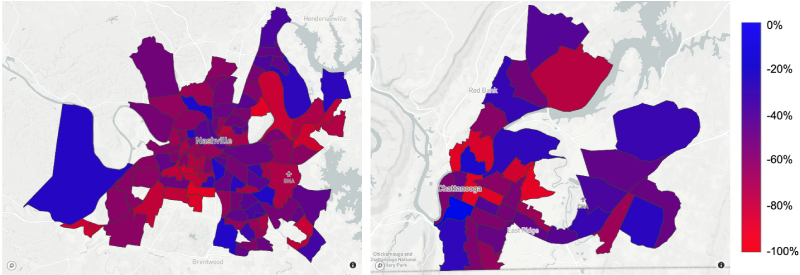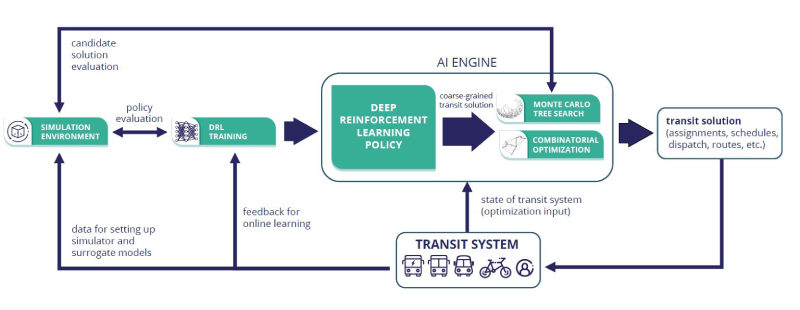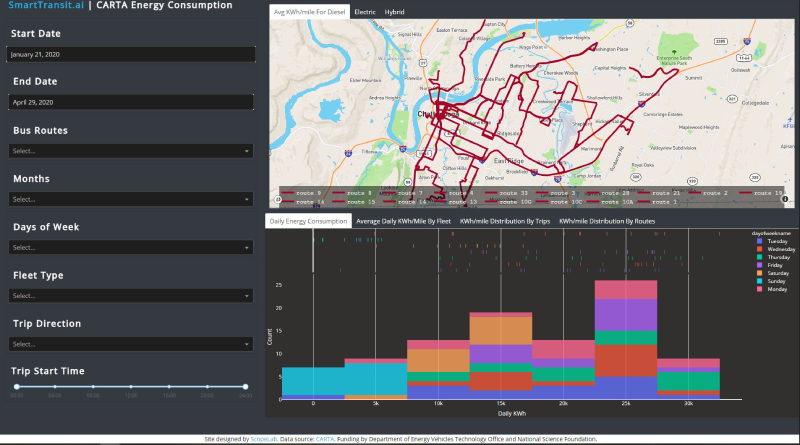Vanderbilt researcher receives $3.9 million in grants to
[ad_1]
A $2.1 million grant from the Nationwide Science Basis and a $1.eight million grant from the U.S. Division of Power will present funding for Vanderbilt researcher Abhishek Dubey, assistant professor {of electrical} engineering and laptop science, to reimagine regional transit techniques utilizing cutting-edge knowledge science strategies via a bunch of tasks referred to as Sensible Transit.

Each grants will fund tasks with the Chattanooga Space Regional Transportation Authority and will probably be led by Dubey’s Sensible and resilient Computing for Bodily Environments Lab inside Vanderbilt’s Institute for Software program Built-in Programs.
Dubey’s NSF undertaking, “Mobility for all: Harnessing rising transit options for underserved communities,” will give attention to growing expertise to design micro-transit techniques to serve areas the place fastened line transit shouldn’t be economical. The system would dynamically generate routes that extra simply allow passengers to entry service from stops based mostly on rider demand, much like trip sharing shuttle or pool service. As well as, the grants present funding for group engagement efforts to know key challenges and talk new options in service adoption.

Prior to now expertise to ascertain built-in micro-transit techniques has not been profitable as a result of the system-level challenges are too technically troublesome to deal with and confusion amongst passengers results in restricted adoption. To account for these recognized challenges, the undertaking will take a socio-relational method via the enter of Paul Speer, professor and chair of the Division of Human and Organizational Improvement at Peabody School and an professional in group organizing, social energy and group change. His experience will support within the undertaking’s group engagement efforts.
Others concerned in Dubey’s NSF grant embody:
- Aron Laszka, a cybersecurity professional and assistant professor of laptop science on the College of Houston
- Lillian Ratliff, an active-learning professional and assistant professor {of electrical} engineering on the College of Washington
- Samitha Samaranayake, a route planning and dispatch professional and assistant professor in civil and environmental engineering at Cornell
- Chandra Ward, an city sociology professional and assistant professor of sociology on the College of Tennessee Chattanooga.
“We’re making use of group course of greatest practices to attain broad help for a tech-enabled transit system in Chattanooga,” mentioned Speer. “We intend to attach with group leaders who can then interact their constituents, in order that we now have a transparent understanding of peoples’ mobility wants. With this info, Prof. Dubey and our collaborators can design a really sensible transit system.” The Division of Power undertaking, “AI: Engine for optimizing built-in service in blended fleet transit operations,” seeks to develop extra power environment friendly options to mix individualized transit for folks with disabilities with fixed-route service.

Dubey and his collaborators will use state-of-the-art machine studying and knowledge pushed optimization strategies to deal with the logistics challenges of integrating 21st century transit’s opposing targets – protecting on schedule amid visitors and accommodating dynamic stops – whereas guaranteeing that the service meets strict necessities
Dubey plans to discover strategies that draw upon reinforcement studying and Multiagent Monte Carlo search strategies, an utility of synthetic intelligence that may forecast outcomes based mostly on decision-making elements. For instance, if there are two requests made without delay, the Monte Carlo search technique will run via a number of eventualities till it determines the ‘greatest’ answer to accommodate each. Dubey has utilized these strategies up to now to optimize the operations for ambulances.
A key facet of each tasks would be the capability to design and configure advanced synthetic intelligence algorithms that enhance over time and be taught with new eventualities and conditions. To take action, the staff is constructing a big built-in simulation of Chattanooga’s transit system. “We will probably be questioning easy methods to set the parameters that may lead CARTA to the perfect efficiency throughout its operations, refining our strategies,” Dubey mentioned. “It is a advanced, multidimensional course of that our group is trying ahead to making use of to a real-world problem. After we clear up this, we’ll have helped create a extra power environment friendly and efficient public transit system.” Dubey’s fashions have already resulted in a knowledge dashboard that demonstrates the effectivity benefits of particular routes based mostly on journey routes and timing.

“We have now some very attention-grabbing challenges to resolve, significantly as we’re doing this work amid a world pandemic,” mentioned Dubey, who can be a senior analysis scientist at Vanderbilt’s Institute for Software program Built-in Programs. “Our aim with these synergistic tasks is to rethink completely the on-demand and fixed-line transit operations to make them extra environment friendly and consumer pleasant for passengers over the subsequent 4 years.”
The DOE grant enhances Dubey’s prior power effectivity undertaking already underway with CARTA.
[ad_2]
Supply hyperlink